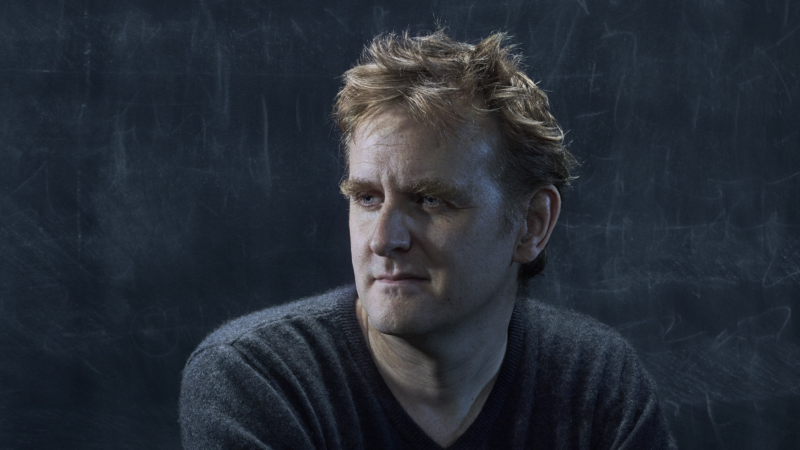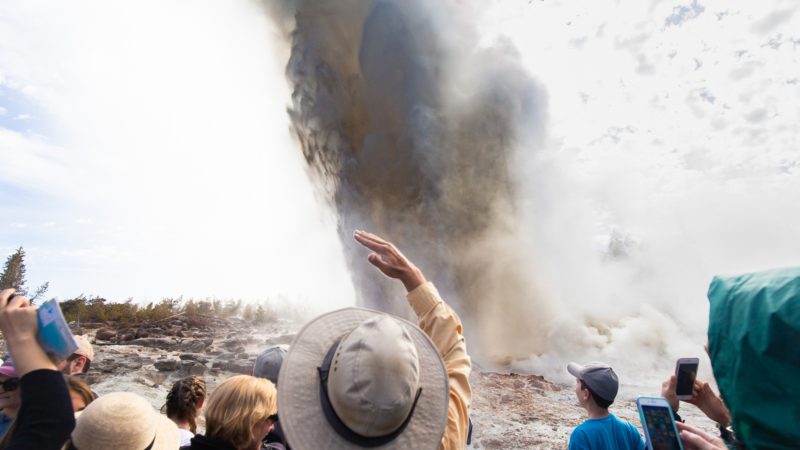What We Know About CBD
CBD or cannabidiol seems to be everywhere. CVS pharmacy announced earlier this month it would begin carrying some CBD products in eight states, including Alabama. It’s also in convenience stores and coffee shops. CBD is derived from cannabis and proponents say it can help with conditions from epilepsy to anxiety to pain. But is there evidence for that?
WBHM’s Andrew Yeager spoke with Dr. Marcel Bonn-Miller, research director at the Lambert Center for the study of Medicinal Cannabis and Hemp.
What conditions could CBD treat?
CBD offers a lot of promise in treating an array of conditions. “Think of it almost like a shotgun,” Bonn-Miller says. “It hits all sorts of different receptors and that’s why it has potential for all sorts of different conditions.”
The Food and Drug Administration approved the first CBD-based drug last year for two rare types of epilepsy.
Bonn-Miller says there’s preliminary data to suggest CBD could help treat anxiety, particularly disorders characterized by social anxiety such as Fragile X syndrome and autism. Pain tied to inflammation could be treated as well. He says researchers are looking at CBD as a potential treatment for schizophrenia.
What evidence is there of CBD’s effectiveness?
Very little at this point. Bonn-Miller says most studies on CBD so far are on rodents, much less rigorous than the clinical trials necessary for federal approval of a drug.
“There’s a big gap between ‘we saw improved memory in rats’ to [then] say it helps improve cognition and treat Alzheimer’s,” Bonn-Miller says.
He says even the CBD drug approved by the FDA is just for those specific epileptic conditions.
“There have been other studies that have looked at other types of epilepsies and haven’t found such profound effects,” Bonn-Miller says.
He says larger studies are underway, some conducted by pharmaceutical companies, to see if claims made by CBD proponents bear out.
What side effects or drug interactions are associated with CBD?
Bonn-Miller says CBD has minimal side effects, even at high doses of more than 4,000 milligrams a day. He says unlike THC, the psychoactive ingredient in marijuana, there’s not a risk of abuse. There’s minimal risk of becoming addicted to CBD or building a tolerance.
CBD can interact with other drugs. Bonn-Miller specifically lists antidepressants, benzodiazepines and seizure medications. “Those are definitely important considerations and need to be carefully thought about and monitored by a physician … if you’re going to use CBD,” Bonn-Miler says.
For a generally healthy person, does taking CBD do anything?
Bonn-Miller says there are two camps: those taking CBD for wellness purposes and those treating a specific condition. He says the biggest difference between the two are dosages. He says most medical studies involve taking hundreds of milligrams of CBD a day. Those adding it to food or taking it as a supplement may ingest fewer than 30 milligrams a day. Plus, he says very little — only about 6-percent of the CBD — makes it through the digestive system to be absorbed by the body when taken orally.
“In terms of medical disorders or psychological conditions, there’s not a whole lot of evidence that 20 or 30 milligrams per day is going to do much,” Bonn-Miller says.
What should consumers consider when buying CBD?
There is no consistent regulatory framework for CBD products, meaning you can’t necessarily trust what’s on the label. Bonn-Miller says that means buyer beware.
“I don’t mean this to be scary or to scare people away from using these products, but the onus is on you to assure quality,” Bonn-Miller says.
He says to look for the batch number on the product, call the company, and ask for a testing report. He says this is especially important if you’re using CBD to treat a medical condition.
“I would even go so far as to have it independently tested until you get a product and a company that you trust, that consistently has independent tests that match what they say is in the bottle,” Bonn-Miller says.
He says contaminants such as pesticides and heavy metals have also been found in CBD.
“When you super concentrate something like CBD from a plant and that plant had pesticides, that means those pesticides are super concentrated,” Bonn-Miller says. “Doing the due diligence on your side because it’s not being done from the federal government at this point is really critical.”
Photo by thevape.guide
Mass trial shines a light on rape culture in France
A harrowing and unprecedented trial in France is exposing how pornography, chatrooms and men’s disdain for or hazy understanding of consent is fueling rape culture.
What’s your favorite thing about fall?
With cooler mornings and shorter days, if feels like fall is finally here. So what’s your favorite thing about fall? We put that question to people at our recent News and Brews community pop-up in Cullman.
Teammates LeBron and Bronny James make history as the NBA’s first father-son duo
The Jameses, who both play for the L.A. Lakers, shared the court for several minutes on the NBA's opening night. They join a very small club of father-son teammates in American professional sports.
After John le Carré’s death, his son had the ‘daunting’ task to revive George Smiley
Nick Harkaway grew up hearing his dad read drafts of his George Smiley novels. He picks up le Carré's beloved spymaster character in the new novel, Karla's Choice.
When Steamboat goes WHOOSH, scientists look for answers
What triggers geysers to go off is still not well understood. A new paper shows that one small earthquake likely triggered an eruption of the world's tallest active geyser, Steamboat.
Trump’s ex-chief of staff warns his former boss would rule like a ‘fascist’
John Kelly is one of several Trump-era White House officials to publicly criticize their former boss, arguing that Trump is not fit to hold office again.






